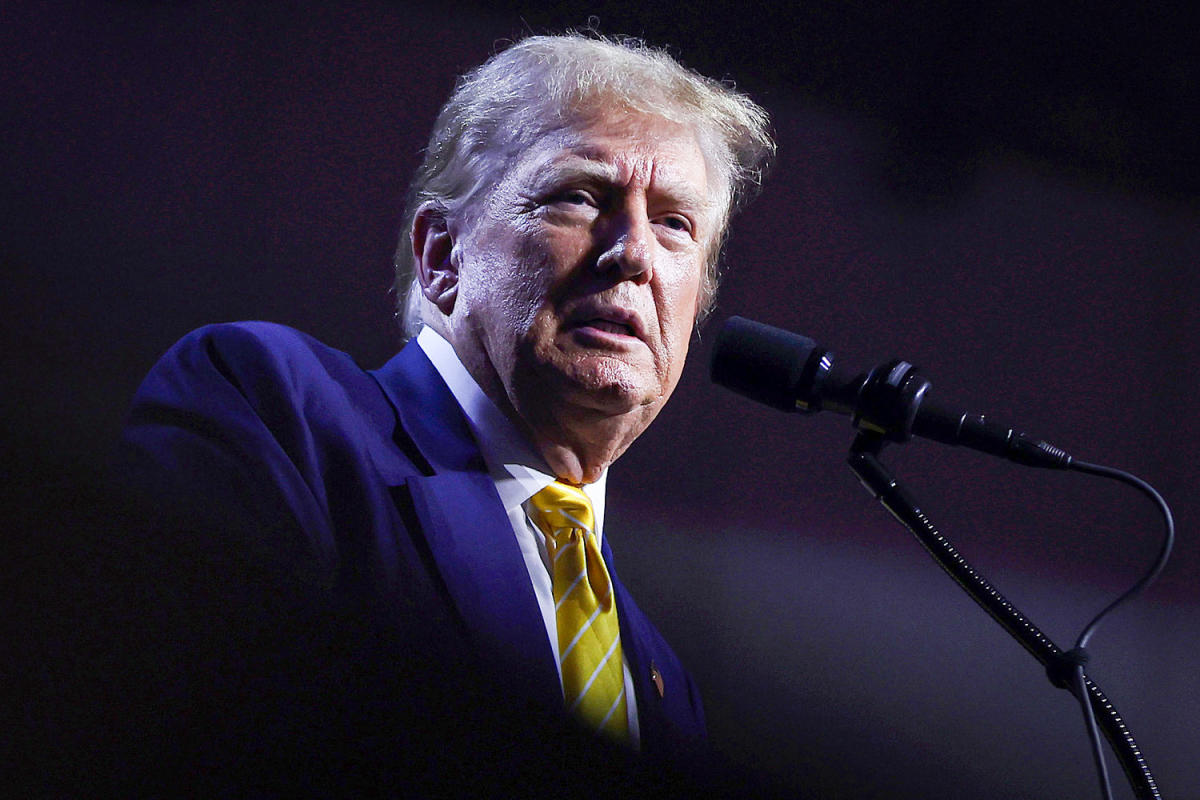Take a look at a list of the largest companies in the world based on market cap, and you might notice a common thread for most of them: The biggest members of the group have bet heavily on artificial intelligence (AI). And those bets seem to be paying off.
Currently, six AI stocks are worth over $1 trillion. They could have company in the not-too-distant future. Here are the top six — and the two AI stocks most likely to join the club next.
The $1 trillion six-pack
Apple (NASDAQ: AAPL) and Microsoft (NASDAQ: MSFT) are in a close race to be the world’s biggest company. Both of their market caps hover around $3.3 trillion.
For a while, it looked like Apple could be left in the dust in the race to develop AI technology. Its Siri AI assistant seemed almost antiquated compared to new large language models (LLMs).
However, Apple’s recent launch of new generative AI capabilities has changed the narrative. Some think the new Apple Intelligence features might even spark an iPhone upgrade super cycle.
Microsoft has benefited tremendously from its relationship with ChatGPT creator OpenAI. The tech giant’s cloud business has especially grown thanks to a huge generative AI tailwind. The company’s introduction of AI-powered Copilot+ PCs should also provide a nice boost to its operating system sales.
Nvidia (NASDAQ: NVDA) is nipping at Apple’s and Microsoft’s heels with a market cap of around $3.2 trillion. The maker of graphics processing units (GPUs) has been the poster child of the AI boom over the last 18 months. Nvidia’s forthcoming rollout of its Blackwell GPU architecture could keep it at the top of the AI chip market.
We could say that Google parent Alphabet (NASDAQ: GOOG) (NASDAQ: GOOGL) and Amazon (NASDAQ: AMZN) are in the second tier of megacap AI stocks. Alphabet’s market cap is around $2.2 trillion, while Amazon’s is slightly under $2 trillion.
Both companies, like Microsoft, are cloud service providers. Generative AI could be the strongest growth driver for the cloud so far. Both Alphabet and Amazon are using AI to increase revenue in their core non-cloud businesses (search for Alphabet and e-commerce for Amazon). They’re also hoping to be winners in self-driving car technology — Alphabet with its Waymo unit and Amazon with Zoox.
Meta Platforms (NASDAQ: META) lags behind the other AI leaders with a market cap of close to $1.3 trillion. The company uses AI extensively throughout its social media apps, including Facebook and Instagram. CEO Mark Zuckerberg predicted in late 2023 that AI-powered business messaging will be “the next major pillar” of its business.
Next in the club
Which AI companies are in the best position to join these six in the $1 trillion club? My votes go to Broadcom (NASDAQ: AVGO) and Taiwan Semiconductor Manufacturing (NYSE: TSM).
Broadcom’s market cap now stands close to $780 billion. The stock surged last week after the semiconductor maker reported great fiscal 2024 second-quarter results. Revenue jumped 43% year over year, driven primarily by its acquisition of VMware and strong demand for its networking products in AI data centers.
The company also announced plans to conduct a 10-for-1 stock split on July 15. Although this split won’t impact Broadcom’s underlying business, it could make the stock more attractive to retail investors.
Taiwan Semiconductor Manufacturing’s market cap of around $740 billion isn’t too far behind Broadcom’s. The company makes chips for many of the top AI leaders, including Apple, Nvidia, and Broadcom.
As its name indicates, the company is based in Taiwan. However, it expects to begin production at its first advanced chip fabrication facility in Arizona next year. It’s also building another fab plant in that state, with plans for a third. These investments could cement the company’s status as the go-to chipmaker for the world’s best AI companies.
Are Broadcom and Taiwan Semiconductor smart picks?
While I predict Broadcom and Taiwan Semiconductor will be the next AI stocks with market caps of $1 trillion or more, I don’t know how long they will take to reach that threshold. But I think both are smart stocks to buy right now for aggressive growth investors.
Income investors and value investors will probably want to look elsewhere. Neither stock is cheap. Although both pay dividends, their yields are only in the ballpark of 1.4% — not enough to entice many income investors.
If you’re looking for growth, though, and don’t mind potential volatility, Broadcom and Taiwan Semiconductor Manufacturing could be great fits. I expect both stocks to continue to beat the market in the coming years as the adoption of AI increases.
Should you invest $1,000 in Broadcom right now?
Before you buy stock in Broadcom, consider this:
The Motley Fool Stock Advisor analyst team just identified what they believe are the 10 best stocks for investors to buy now… and Broadcom wasn’t one of them. The 10 stocks that made the cut could produce monster returns in the coming years.
Consider when Nvidia made this list on April 15, 2005… if you invested $1,000 at the time of our recommendation, you’d have $808,105!*
Stock Advisor provides investors with an easy-to-follow blueprint for success, including guidance on building a portfolio, regular updates from analysts, and two new stock picks each month. The Stock Advisor service has more than quadrupled the return of S&P 500 since 2002*.
*Stock Advisor returns as of June 10, 2024
Suzanne Frey, an executive at Alphabet, is a member of The Motley Fool’s board of directors. John Mackey, former CEO of Whole Foods Market, an Amazon subsidiary, is a member of The Motley Fool’s board of directors. Randi Zuckerberg, a former director of market development and spokeswoman for Facebook and sister to Meta Platforms CEO Mark Zuckerberg, is a member of The Motley Fool’s board of directors. Keith Speights has positions in Alphabet, Amazon, Apple, Meta Platforms, and Microsoft. The Motley Fool has positions in and recommends Alphabet, Amazon, Apple, Meta Platforms, Microsoft, Nvidia, and Taiwan Semiconductor Manufacturing. The Motley Fool recommends Broadcom and recommends the following options: long January 2026 $395 calls on Microsoft and short January 2026 $405 calls on Microsoft. The Motley Fool has a disclosure policy.
6 Artficial Intelligence (AI) Stocks Are Worth Over $1 Trillion. Here Are the 2 Most Likely to Join the Club Next. was originally published by The Motley Fool







